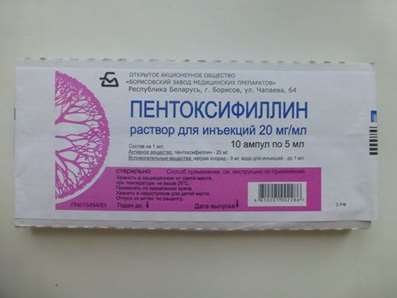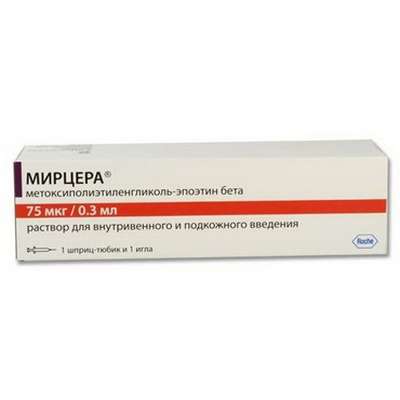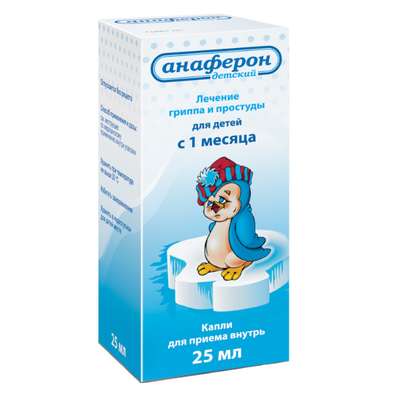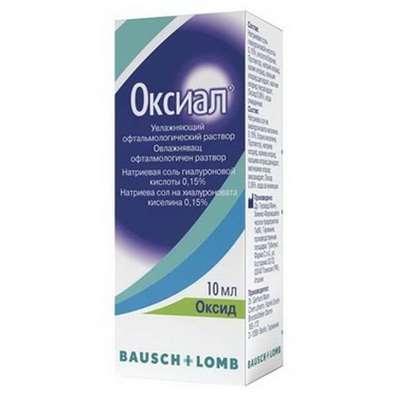Instruction for use: Awelysin Braun
I want this, give me price
Dosage form: Powder for solution for injection
Active substance: Streptokinasum
ATX
B01AD01 Streptokinase
Pharmacological group
Fibrinolytics
The nosological classification (ICD-10)
I21 Acute myocardial infarction: Myocardial infarction in the acute phase; Acute Myocardial Infarction; Myocardial infarction with pathologic Q wave and without; Myocardial infarction complicated by cardiogenic shock; Infarction left ventricular; Transmural myocardial infarction; Myocardial infarction netransmuralny (subendocardial); Netransmuralny myocardial infarction; Subendocardial myocardial infarction; The acute phase of myocardial infarction; Acute myocardial infarction;Sub-acute phase of myocardial infarction; Subacute phase of myocardial infarction; Thrombosis of the coronary arteries (the arteries); Threatened myocardial infarction; Myocardial infarction without Q wave
I26 Pulmonary embolism: Recurrent thromboembolism of the pulmonary artery; Recurrent pulmonary embolism; Thromboembolism of the branches of the pulmonary artery; Thromboembolism of the lungs; Thromboembolism of the pulmonary artery (PE); Thrombosis of the pulmonary artery; Thromboembolism; Thromboembolism of the pulmonary artery; Thromboembolism; Pulmonary embolism; Thromboembolism of the pulmonary artery and its branches; Thromboembolism of pulmonary vessels; Embolism of the lung; Embolism of the pulmonary artery; Acute massive thromboembolism of the pulmonary artery
I74 Embolism and arterial thrombosis: Thrombosis of effort (stress); Arterial thrombosis; Arteriothrombosis; Subacute and chronic arterial thrombosis; Subacute thrombosis of peripheral arteries; Postoperative thrombosis; Vascular thrombosis; Vascular embolism; Thrombosis of aortocoronary shunt; Arterial thrombosis; Thrombosis of arteries; Coronary artery thrombosis; Coronary thrombosis; Thrombosis of blood vessels; Thrombosis with ischemic stroke; Thrombosis with general surgical operations; Thrombosis in Oncology Operations; Vascular thrombosis; Thrombus formation in the postoperative period; Thrombotic complications; Thromboembolic diseases; Thromboembolic syndrome; Thromboembolic complication in the postoperative period; Thromboembolism of arteries; Partial vascular thrombosis; Embolism; Embolism of arteries
I70.2 Atherosclerosis of arteries: arteriosclerosis obliterans; Arteriosclerosis peripheral arteries; Atherosclerosis of the arteries of the lower extremities; Atherosclerosis of peripheral arteries; Atherosclerosis limbs; Occlusive disease of the lower extremities; arteriosclerosis obliterans; Arteriosclerosis obliterans of lower limb arteries; Atherosclerosis obliterans of the upper limbs; Arteriosclerosis obliterans of lower extremities; Atherosclerosis of arteries; limb arteriopathy; Arteriosclerosis obliterans limbs; arteriosclerosis obliterans
I82 Embolism and thrombosis of other veins: Recurrent venous thrombosis; Postoperative thrombosis; Venous thrombosis; Acute venous thromboembolism; Recurrent vein thrombosis; Venous thrombosis; Thrombosis of veins of internal organs; Venous thrombosis; Deep vein thrombosis; Thrombosis of blood vessels; Vascular thrombosis; Thrombosis of veins; Deep vein thrombosis; Thromboembolic diseases; Thromboembolism of veins; Severe venous thrombosis; Embolism; Embolism of veins; Thromboembolic complications
R07.2 Pain in the heart: neuroses of the heart; Myocardial ischemic pain; Pain syndrome in myocardial infarction; cardialgia; cardioneurosis; Cardiac syndrome; Pain in cardiac patients; Cardialgia on background dyshormonal myocardial dystrophy; Functional cardialgia; Psevdostenokardiya; pericardial pain
Composition and release form
1 bottle with lyophilized powder for the preparation of the injection solution contains streptokinases (a protein with a molecular weight of about 5000 daltons produced by certain Streptococcus strains) 100,000, 250,000, 750,000 or 1,500,000 IU; In the package 1 and 5 bottles.
Pharmachologic effect
Mode of action - Fibrinolytic.
When combined with plasminogen, it forms a complex that activates the transition of blood plasma or blood clot into the plasmine-proteolytic enzyme that dissolves fibrin.
Pharmacodynamics
Activates fibrinolysis due to the conversion of the pro-activator-plasminogen to fibrinolysin (plasmin). The effect is dose-dependent; Since streptokinase is a streptococcal protein with antigenic properties, it is possible to neutralize it with appropriate antibodies; In this situation, the acceleration of fibrinolysis is achieved by the administration of an excessive amount of streptokinase (necessary for the neutralization of antibodies).
Indication of the drug Awelysin Braun
Acute myocardial infarction, pulmonary embolism, thrombosis and thromboembolism of the arteries (acute thrombosis of peripheral arteries, chronic obliterating endarteritis, rethrombosis after vascular surgery, obliteration of arteriovenous shunt); Vein thrombosis (vein thrombosis of internal organs, acute thrombosis of deep veins of the extremities and pelvis, rethrombosis after operations on vessels); Thrombosis of the artery due to diagnostic or therapeutic procedures in children, as well as thrombosis of vessels during catheterization in newborns.
Contraindications
Absolute: hypersensitivity, bleeding (including recent), hemorrhagic diathesis, erosive and ulcerative lesions of the gastrointestinal tract and chronic inflammatory diseases of the colon (including ulcerative colitis), recent multiple injuries, an aneurysm that does not respond (refractory ), hypertension (blood pressure over 200/110 mm Hg), severe diabetic retinopathy, acute pancreatitis, endocarditis, mitral heart diseases with atrial fibrillation, active tuberculosis and others. cavernous lung disease, sepsis or ce ptichesky thrombosis, postoperative period (8-12 postoperative days 3-6 weeks following extended surgical interventions, 8 weeks after neurosurgical operations), 10 days after arterial puncture and / im injection, 4 weeks after translyumbalnoy arteriography, 3 months after acute hemorrhagic stroke 3 months).
Relative: transferred streptococcal infection, for example, rheumatism (with anti-streptokinase antibody titer of more than 300 IU streptokinase / ml), bronchial asthma, severe liver or kidney dysfunction, diabetes mellitus, bronchialectas with hemoptysis, esophageal veins, neoplasms with risk of bleeding, recent use anticoagulants, post-cardiopulmonary resuscitation (including chest compressions), IVL (intubation), bleeding in urological diseases (eg urolithiasis), chronic abolevaniya gastrointestinal tract, menorrhagia (normal menstruation is not a contraindication).
Pregnancy and breast-feeding
Contraindicated in the first 18 weeks of pregnancy, as well as in cases of pregnancy pathologies associated with an increased risk of bleeding (placenta previa, etc.). In subsequent months of pregnancy and the postpartum period (not earlier than 7 days), appointment is possible only on strict indications.
Side effects
Bleeding from the injection site, gums, hemorrhages to the skin, hematoma, internal bleeding (rarely), reperfusion arrhythmia, noncardiogenic pulmonary edema, thromboembolism, capillarotoxicosis (Shenlaine-Henoch syndrome), increased ESR; Increase in the serum of the activity of transaminases, gamma-glutamyltranspeptidase, alkaline phosphatase, creatine kinase, bilirubin content, decrease in cholinesterase level; Allergic and immunopathological reactions (flush to the face, urticaria, skin rash, brady or tachycardia, falling blood pressure, shortness of breath, nausea, vomiting, headache, back and muscle pain, fever, rarely anaphylactic shock).
Interaction
Heparin, coumarin derivatives, dipyridamole, dextrans, acetylsalicylic acid potentiate the action of the drug Avelisin Brown. Controlled synergism of streptokinase and acetylsalicylic acid can be used to improve thrombolysis in the acute period of myocardial infarction.
Dosing and Administration
IV (for rapid dissolution, the dry substance is gently mixed, avoiding foaming, with 5 ml of isotonic saline or water for injection, 5% glucose solution, Ringer's lactate solution or gelatin may also be used as the solvent).
Adults: for short-term lysis with thrombosis of peripheral arteries or veins prescribed in an initial dose of 250,000 IU for 30 minutes, then - maintenance doses of 1.5 million IU every hour for 6 hours; The maximum dose per cycle is 9 million IU.
In case of coronary thrombosis (acute myocardial infarction) - 1.5 million IU for 60 minutes, followed by the introduction of heparin at a dose of 1000 IU / h. The effect is controlled by determining thrombin or partial thromboplastin time; These indicators should be at least 2-4 or, respectively, 1.5-2.5 normal values.
For long-term lysis in peripheral vascular thrombosis, 250,000 IU is administered for 30 minutes. The maintenance dose is 100,000 IU / h. This achieves a 2-4 fold increase in thrombin time 6-8 hours after the onset of lysis. The level of fibrinogen in the plasma should not be less than 1 g / l. If after several hours the thrombin time increases more than 4-fold, the maintenance dose of streptokinase should be doubled and applied until the thrombin time index again stabilizes in the interval mentioned above.
For intracoronary thrombus lysis, 20,000 IU of intracoronary are administered via a catheter, followed by 2000-4000 IU / min for 30-90 minutes.
Children: 1000-10000 IU / kg for 20-30 minutes followed by a prolonged infusion of 1000 IU / kg / h. Administration is discontinued when the pulse becomes palpable or when there is significant bleeding at the site of administration.
To prevent retrombosis appoint heparin.
The duration of treatment should not exceed 5 days.
Overdose
Symptoms: massive bleeding.
Treatment: antifibrinolytic agents (tranexamic or paraaminomethylbenzoic acids, inhibitors of kallikrein and other proteases, for example, aprotinin - at an initial dose of 500,000 KIU, then in a maintenance dose of 50,000-100,000 KIU / h IV).
Special instructions
Before the introduction to children and patients with a history of elevated titer of anti-streptokinase antibodies, a test for sensitivity to streptokinase is carried out. In newborns and premature infants, ultrasound of the skull is recommended.
At the beginning of treatment, infusion should be performed at a low rate; Preliminary treatment with prednisolone and antihistamines is recommended (prophylaxis of anaphylactic reactions).
Periodic (with an interval of 4 hours) blood coagulability monitoring is determined: thrombin or partial thromboplastin time is determined (avoiding reocclusion of blood vessels allows increasing thrombin time by 2-4 times, and partial thromboplastin time by 1.5-2.5 times, taking this into account Enter the appropriate amount of heparin).
It should be borne in mind that repeated administration of the drug may lead to a decrease in efficacy and an increase in the likelihood of side effects.
During the treatment with Avelizin Brown with deep vein thrombosis, patients should not stop taking contraceptives (the risk of intrauterine bleeding is high).
The effectiveness of the drug is low when used for local intracoronary lysis in acute myocardial infarction after 12 hours, with local treatment of chronic obliterating endarteritis and thromboembolic occlusion - after 6 weeks, for systemic treatment of myocardial infarction - after 24 hours, as well as thrombosis of deep Veins - after 14 days.
Given the possible increase in blood clotting, to avoid retrombozov therapy is carried out in conjunction with anticoagulants, agents that inhibit platelet aggregation (initially - heparin 500-1000 IU / h, then - oral derivatives of coumarin); When prescribing heparin, an increased risk of bleeding should be considered.
Ready solutions of streptokinase should be used within 12 hours.
Plasmasubstitution drugs - hydroxyethyl starch and dextran - cannot be used as a solvent for the drug Avelysin Brown because of their effect on the blood coagulation system.
Storage conditions of the drug Awelysin Braun
At a temperature not higher than 25 ° C.
Keep out of the reach of children.
The shelf life of the drug Awelysin Braun
3 years.
Do not use beyond the expiration date printed on the package.

 Cart
Cart





